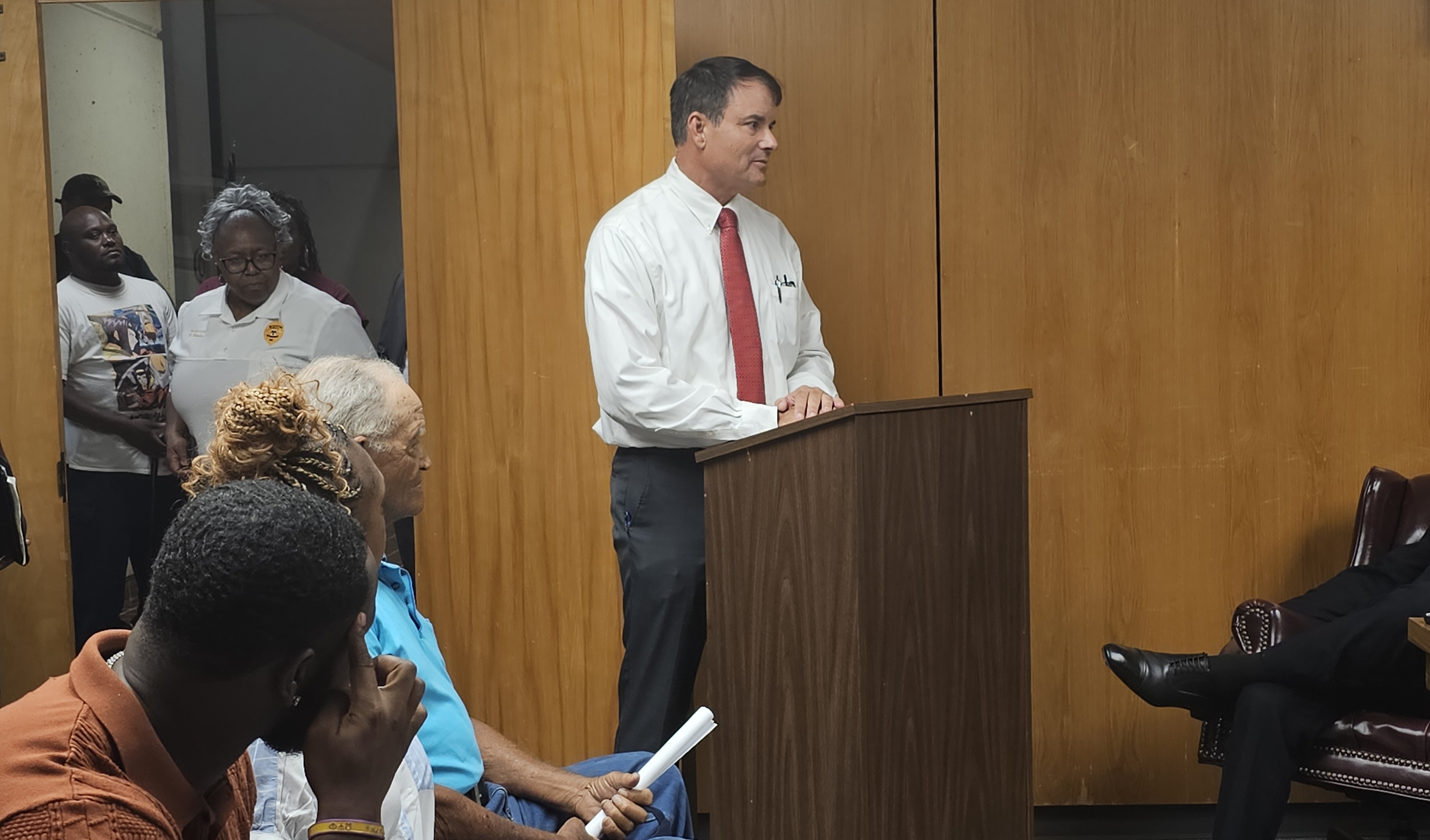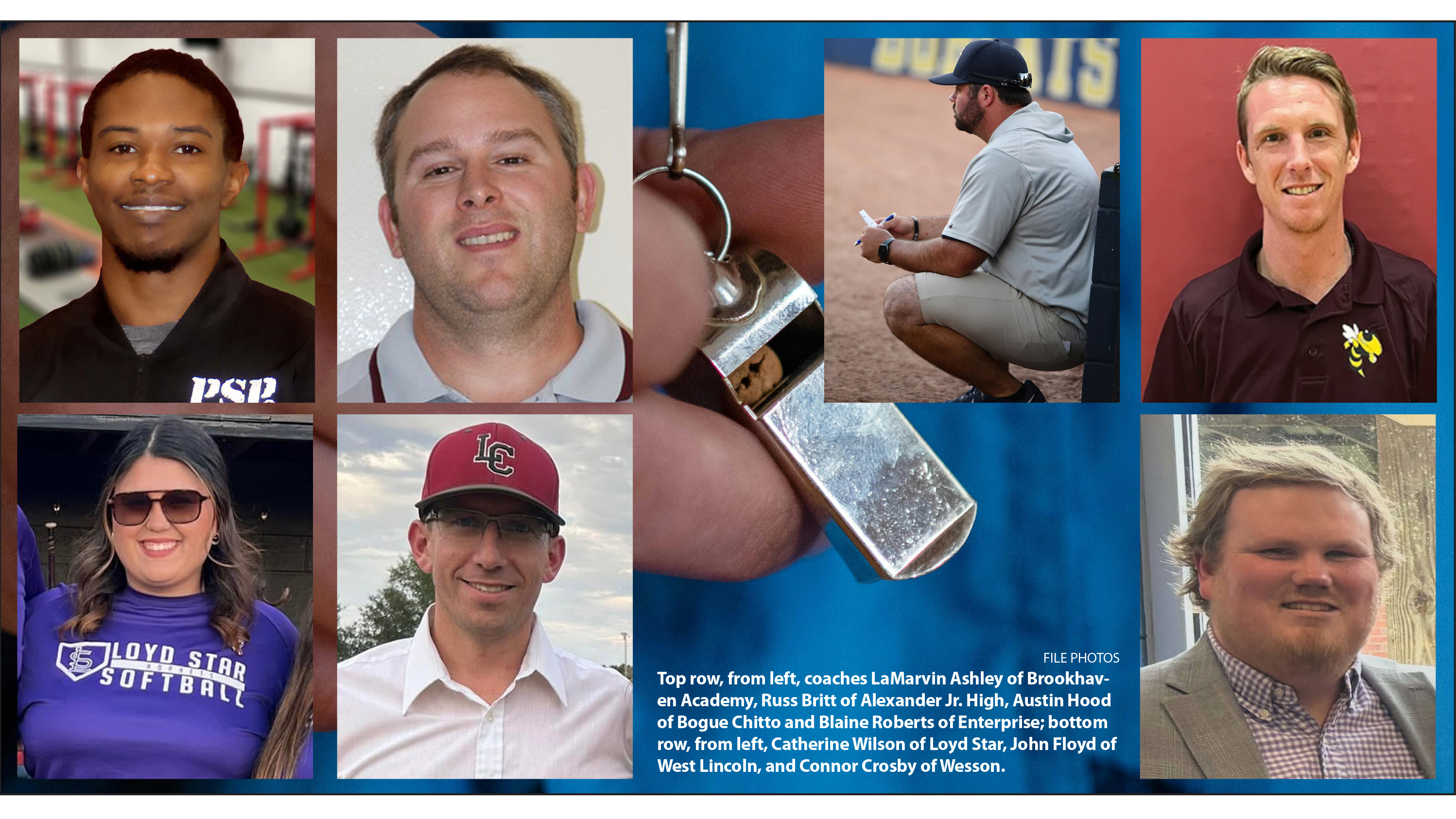‘I don’t want it to be the No. 1 crime here’
Published 8:46 pm Tuesday, February 12, 2019
It was overcast when I met Susie Harvill at a hotel and casino in Biloxi. She’s petite with graying hair cropped closely around her face. And she cuts straight to the chase.
“Casinos are all just like any other resort. If people ever wanted to do something immoral or wrong, they will many times do it on a vacation.”
Harvill is the director of Advocates for Freedom, a group fighting human trafficking in Mississippi. As we talked on the landscaped porte-cochere, casino guests arrived in stretch limos and chartered buses. She told me an account of a visitor who came to the Coast for a convention.
“He actually ordered a 12-year-old and a 16-year-old. One was a boy, and one was a girl. What we found out was this Montana man was a deacon in his church, was married, and had two children at home.”
Stories like this one are why she came out of retirement to fight sex trafficking. Last year, Harvill spoke more than 425 times to Rotary Clubs, police departments, schools and church groups. She told them human tracking is a $150-billion-a-year business, and it’s often connected to organized crime and gangs.
“In Europe, it’s the No. 1 crime. I don’t want it to be the No. 1 crime here.”
Harvill believes prevention is a key to the fight. That begins with teaching the public what human trafficking is and how it differs from prostitution. She emphasizes that if it’s a child, they are not a prostitute. They are prostituted by somebody. In most cases, their situation is dire. No ID, no address, no phone. Then there’s the heartbreaking reality of what they’re being forced to do.
“It’s my understanding that in the state of Mississippi, we have a $1,000 quota that they have to meet a day. Can you imagine a 14-year-old having to meet a $1,000 quota a day? They are the epitome of homeless and helpless.”
Yet some 300,000 underaged Americans are lured into the commercial sex trade every year. Kyle Craig is a sergeant with the Pass Christian Police Department, and he works with Harvill to train children about predators on social media. “People think human traffickers are master manipulators, but they’re not,” maintains Craig. “It’s easy to manipulate a child. And then five years later down the line, they’re 17, they’re addicted to drugs. They have no job skills, no decision-making skills. It’s because their growth as a human being stopped when they got inducted into trafficking at 12.”
Harvill emphasizes predators aren’t just on social media: “We had an 11-year-old who was taken from the bus stop. She told her pimp, ‘Kill me. Just get it over with. I’m not going to cooperate. I’m not going to do this’.” He threatened to take her sister as a replacement. At that, she agreed to do anything he said.
Often, it’s a race to find victims. The average life expectancy is less than seven years once a person is abducted. “We’ve helped four 3-year-olds,” Harvill told me. “That means they may have been dead before they were 10.”
And when they die, human traffickers often mutilate the body to prevent identification. They leave no trace.
Rescuing victims is hard and expensive work. It’s hours of sitting at jails and clinics, providing transportation, clothes and meals. Buying Depends for victims because they can no longer hold their waste. Harvill said a lot of folks don’t want to get involved: “It’s ugly. We’re churchy people, and we absolutely don’t talk about things like this.”
But many people on the Coast have gotten involved. They’re trained to spot victims by their burn marks and malnourished bodies. They teach young people to cover their drinks at parties. They emphasize mandatory reporting of suspected trafficking. And 300 people pray. Harvill said they pray just as hard for the pimps as they do the victims.
Since 2011, Advocates for Freedom has helped rescue 192 trafficking victims. Harvill told me what it was like to reunite a nervous 23-year-old with her family in Charlotte. She had been lured away from home at 17 by a guy she thought was going to love her forever. When she finally met him, “he was old and mean and bad.”
Harvill was able to watch this young woman embrace her parents.
“She just fell into their arms, and it was just really good. I could imagine, what if it was my daughter?”
Kim Henderson is a freelance writer. Contact her at kimhenderson319@gmail.com.




